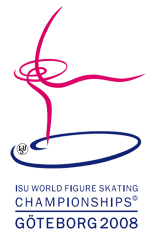| Karl Zwack | |||||||||||||||||||||||||||||||||||
|---|---|---|---|---|---|---|---|---|---|---|---|---|---|---|---|---|---|---|---|---|---|---|---|---|---|---|---|---|---|---|---|---|---|---|---|
| Personal information | |||||||||||||||||||||||||||||||||||
| Full name | Karl Zwack | ||||||||||||||||||||||||||||||||||
| Country represented | |||||||||||||||||||||||||||||||||||
| Partner | Idi Papez | ||||||||||||||||||||||||||||||||||
Medal record
| |||||||||||||||||||||||||||||||||||
Karl Zwack was an Austrian pair skater. With partner Idi Papez, he was the 1933 European Champion [1] and was a three-time World medalist [2]
| Karl Zwack | |||||||||||||||||||||||||||||||||||
|---|---|---|---|---|---|---|---|---|---|---|---|---|---|---|---|---|---|---|---|---|---|---|---|---|---|---|---|---|---|---|---|---|---|---|---|
| Personal information | |||||||||||||||||||||||||||||||||||
| Full name | Karl Zwack | ||||||||||||||||||||||||||||||||||
| Country represented | |||||||||||||||||||||||||||||||||||
| Partner | Idi Papez | ||||||||||||||||||||||||||||||||||
Medal record
| |||||||||||||||||||||||||||||||||||
Karl Zwack was an Austrian pair skater. With partner Idi Papez, he was the 1933 European Champion [1] and was a three-time World medalist [2]
with Idi Papez
| International | ||||||
|---|---|---|---|---|---|---|
| Event | 1930 | 1931 | 1932 | 1933 | 1934 | 1935 |
| World Championships | 3rd | 2nd | 2nd | |||
| European Championships | 5th | 3rd | 1st | 2nd | 2nd | |
| National | ||||||
| Austrian Championships | 2nd | 2nd | 1st | 1st | 1st | |

Figure skating is a sport in which individuals, pairs, or groups perform on figure skates on ice. It was the first winter sport to be included in the Olympic Games, when contested at the 1908 Olympics in London. The four Olympic disciplines are men's singles, ladies' singles, pair skating, and ice dance; the non-Olympic disciplines include synchronized skating, Theater on Ice, and four skating. From intermediate through senior-level competition, skaters generally perform two programs, which, depending on the discipline, may include spins, jumps, moves in the field, lifts, throw jumps, death spirals, and other elements or moves.
The World Figure Skating Championships ("Worlds") is an annual figure skating competition sanctioned by the International Skating Union. Medals are awarded in the categories of men's singles, ladies' singles, pair skating, and ice dance. Generally held in March, the World Championships are considered the most prestigious of the ISU Figure Skating Championships. With the exception of the Olympic title, a world title is considered to be the highest competitive achievement in figure skating.
The International Skating Union (ISU) is the international governing body for competitive ice skating disciplines, including figure skating, synchronized skating, speed skating, and short track speed skating. It was founded in Scheveningen, Netherlands, in July 1892, making it one of the oldest international sport federations. The ISU was formed to establish standardized international rules and regulations for the skating disciplines it governs, and to organize international competitions in these disciplines. It is now based in Lausanne, Switzerland.

The European Figure Skating Championships is an annual figure skating competition in which figure skaters compete for the title of European champion. Medals are awarded in the disciplines of men's singles, women's singles, pair skating, and ice dance. The event is sanctioned by the International Skating Union (ISU) and is the sport's oldest competition. The first European Championships was held in 1891 in Hamburg, Germany and featured one segment, compulsory figures, with seven competitors, all men from Germany and Austria. It has been, other than four periods, held continuously since 1891, and has been sanctioned by the ISU since 1893. Women were allowed to compete for the first time in 1930, which is also the first time pairs skating was added to the competition. Ice dance was added in 1954. Only eligible skaters from ISU member countries in Europe can compete, and skaters must have reached at least the age of 15 before July 1 preceding the competition. ISU member countries can submit 1-3 skaters to compete in the European Championships.

Figure skating was first contested in the Olympic Games at the 1908 Summer Olympics. Since 1924, the sport has been a part of the Winter Olympic Games.

The 2008 World Figure Skating Championships was a senior international figure skating competition in the 2007–08 figure skating season. Medals were awarded in the disciplines of men's singles, ladies' singles, pair skating, and ice dancing. The event was held at the Scandinavium arena in Gothenburg, Sweden from March 16 to 23.
The 2008 World Junior Figure Skating Championships were held from February 25 through March 2 in Sofia, Bulgaria. Commonly called "World Juniors" and "Junior Worlds", they are an annual figure skating competition in which elite figure skaters compete for the title of World Junior Champion. The event is open to figure skaters from ISU member nations who have reached the age of 13 by July 1 of the previous year, but have not yet turned 19. The upper age limit for men competing in pairs and dance is 21. Skaters compete in four disciplines: men's singles, ladies' singles, pair skating, and ice dancing.
The figure skating season is the period of time in which competitions are contested in the sport of figure skating. The skating season begins on July 1 of one year and lasts until June 30 of the next year, thus spanning a full 12 months. The seasons are referred to by the years they span, for example, the 2017/2018 season began in July 2017 and ended in June 2018.
The 2008 Four Continents Figure Skating Championships was an international figure skating competition in the 2007–08 season. It was held at the Seongsa Ice Rink in Goyang, South Korea on February 11–17. Medals were awarded in the disciplines of men's singles, ladies' singles, pair skating, and ice dancing.
The 2008 European Figure Skating Championships was a senior international figure skating competition in the 2007–08 season. Medals were awarded in the disciplines of men's singles, ladies' singles, pair skating, and ice dancing. The event was held from January 21 through 27, 2008 at Dom Sportova in Zagreb, Croatia.
Idi Papez was an Austrian pair skater. With partner Karl Zwack, she was the 1933 European Champion and was a three-time World medalist

The 2012 European Figure Skating Championships was an international figure skating competition in the 2011–12 season. The event determined the European Champions in men's singles, ladies singles, pair skating, and ice dancing. The competition was held from 23 to 29 January 2012 in Sheffield, England.

The 2013 World Figure Skating Championships was an international figure skating competition in the 2012–13 season. The event was held at the Budweiser Gardens in London, Ontario, Canada on March 11–17. Medals were awarded in the disciplines of men's singles, ladies' singles, pair skating, and ice dancing. The event also determined the number of entries a country may send to the 2014 World Championships and 2014 Winter Olympics.
The 2015 World Figure Skating Championships was an international figure skating competition in the 2014–15 season. Figure skaters competed for the title of World champion in men's singles, ladies' singles, pairs, and ice dancing.
The 2014 European Figure Skating Championships was a senior international figure skating competition in the 2013–14 season. The competition was held in Budapest, Hungary from January 13 to 19th, 2014. Skaters competed in the disciplines of men's singles, ladies' singles, pair skating, and ice dancing.
The 2015 European Figure Skating Championships were held 26 January – 1 February 2015 in Stockholm, Sweden. Medals were awarded in the disciplines of men's singles, ladies' singles, pairs, and ice dancing.
The 2014 World Junior Figure Skating Championships was an international figure skating competition in the 2013–14 season. Commonly called "World Juniors" and "Junior Worlds", the event determined the World Junior champions in the disciplines of men's singles, ladies' singles, pair skating, and ice dancing. It was held in Sofia, Bulgaria.

The 2018 European Figure Skating Championships were held in January 2018 in Moscow, Russia. Medals were awarded in the disciplines of men's singles, ladies' singles, pairs, and ice dancing.
This article contains lists of achievements in major international figure skating competitions according to first-place, second-place and third-place results obtained by skaters/teams representing different nations. The objective is not to create combined medal tables; the focus is on listing the best positions achieved by skaters/teams in major international competitions, ranking the nations according to the most number of podiums accomplished by skaters/teams of these nations. All five competitive disciplines currently recognized by the International Skating Union (ISU) are covered: 1) Men's single skating, 2) Ladies' single skating, 3) Pair skating, 4) Ice dance, and 5) Synchronized skating. The four disciplines of men's singles, ladies' singles, pair skating and ice dance also appeared as part of a team event at the Winter Olympic Games.

The 2020 European Figure Skating Championships were held in Graz, Austria, from 20–26 January 2020. Medals were awarded in the disciplines of men's singles, ladies' singles, pairs, and ice dance. The competition will determine the entry quotas for each federation at the 2021 European Championships.
| This article about an Austrian figure skater is a stub. You can help Wikipedia by expanding it. |